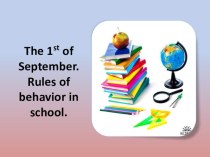- Главная
- Разное
- Бизнес и предпринимательство
- Образование
- Развлечения
- Государство
- Спорт
- Графика
- Культурология
- Еда и кулинария
- Лингвистика
- Религиоведение
- Черчение
- Физкультура
- ИЗО
- Психология
- Социология
- Английский язык
- Астрономия
- Алгебра
- Биология
- География
- Геометрия
- Детские презентации
- Информатика
- История
- Литература
- Маркетинг
- Математика
- Медицина
- Менеджмент
- Музыка
- МХК
- Немецкий язык
- ОБЖ
- Обществознание
- Окружающий мир
- Педагогика
- Русский язык
- Технология
- Физика
- Философия
- Химия
- Шаблоны, картинки для презентаций
- Экология
- Экономика
- Юриспруденция
Что такое findslide.org?
FindSlide.org - это сайт презентаций, докладов, шаблонов в формате PowerPoint.
Обратная связь
Email: Нажмите что бы посмотреть
Презентация на тему Saying sorry in Japan
Содержание
- 2. Geographical position
- 3. Japanese People and ApologizingIt's important to say
- 4. The interesting aspect of Japan's "apology first"
- 5. Even if a person didn't do anything
- 6. When apologizing the Japanese often bow. The
- 7. Here are some expressions used to apologize.Sumimasen. すみません。It
- 8. Moushiwake arimasen. 申し訳ありません。Very formal expression. It should be
- 9. Gomennasai. ごめんなさい。Common phrase. Unlike "Sumimasen" the usage is
- 10. Doumo. どうも。Casual. It also can be used as
- 11. Скачать презентацию
- 12. Похожие презентации
Geographical position
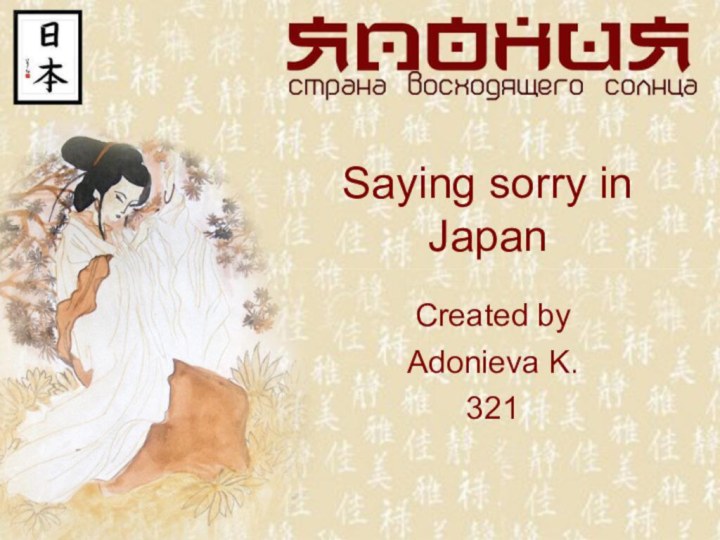
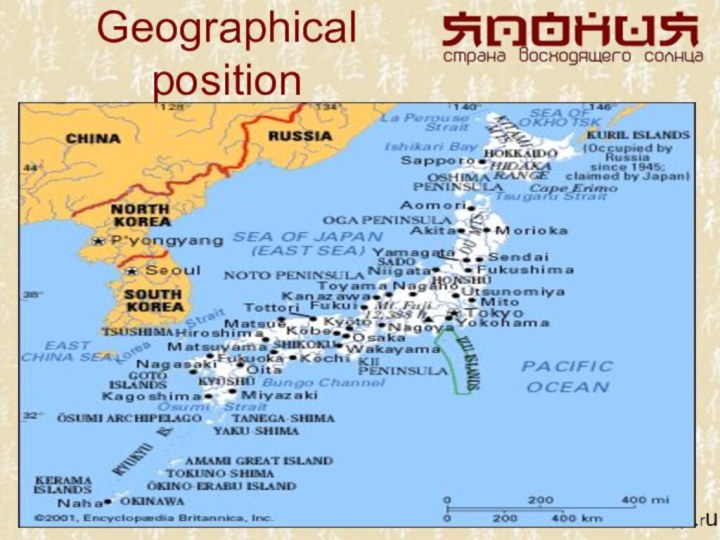
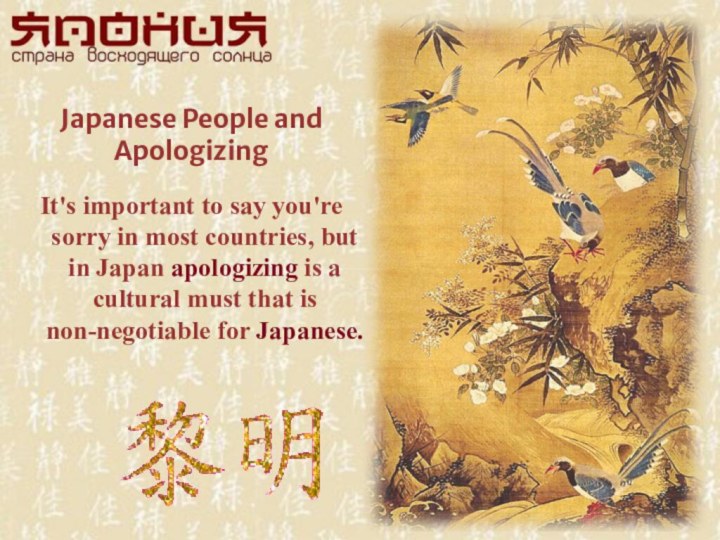
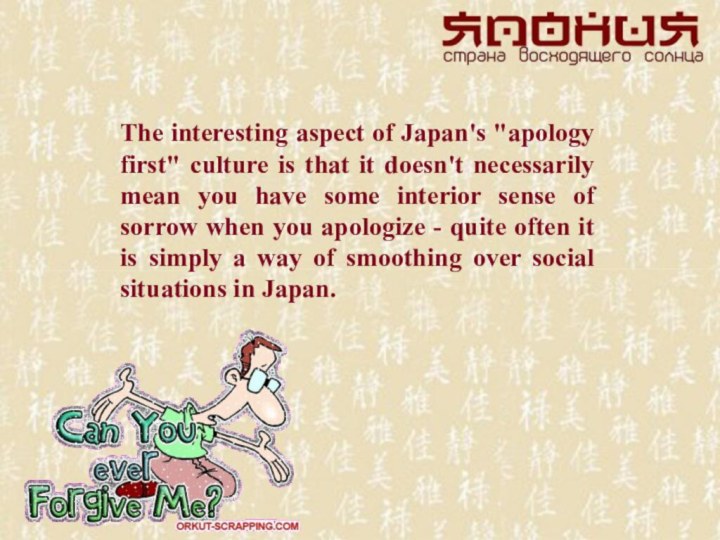
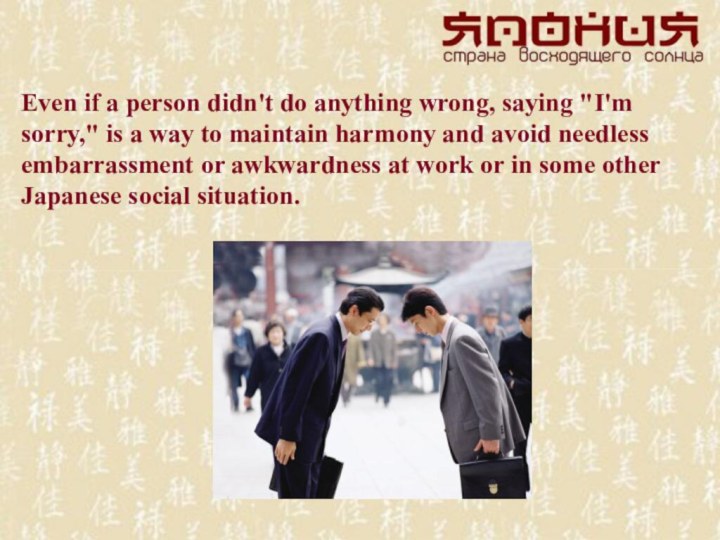
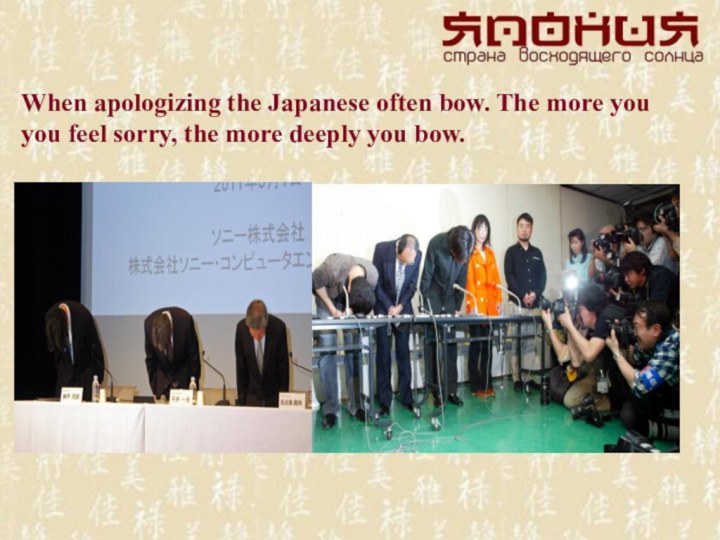


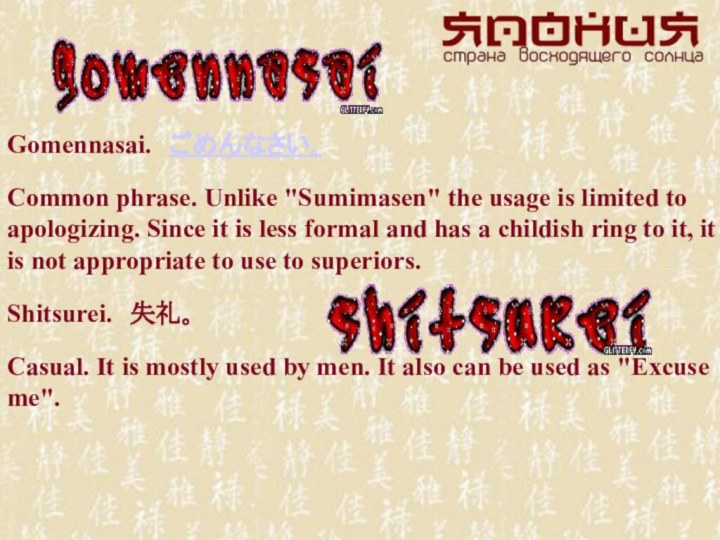
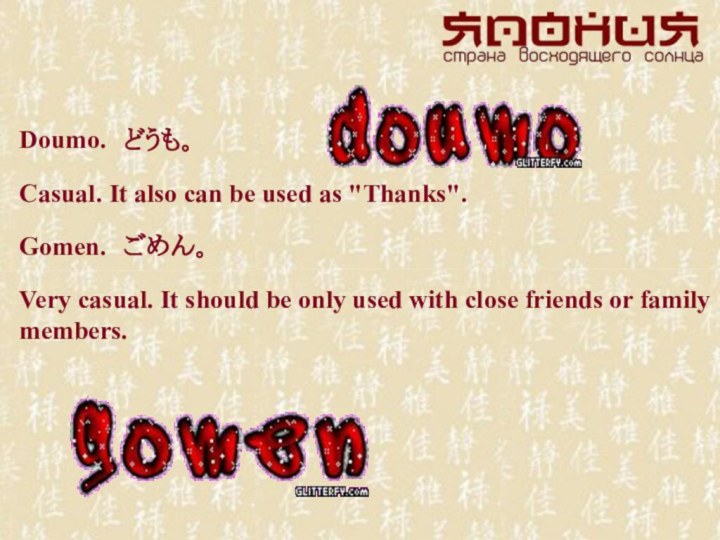
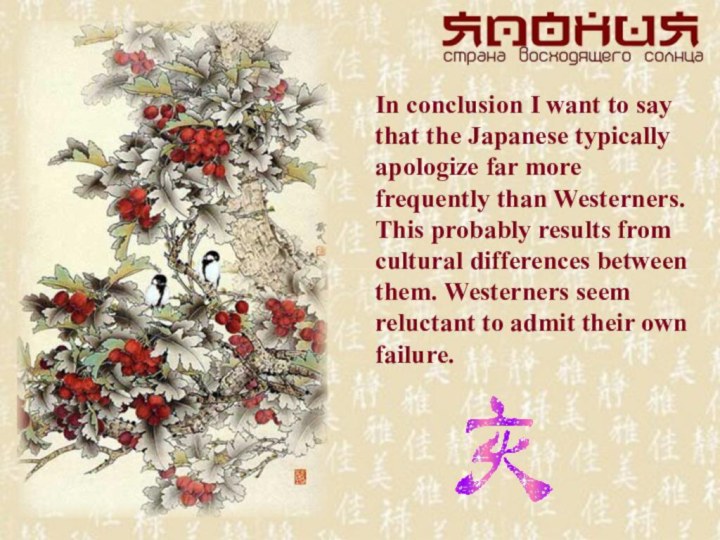
Слайд 4
The interesting aspect of Japan's "apology first" culture
is that it doesn't necessarily mean you have some
interior sense of sorrow when you apologize - quite often it is simply a way of smoothing over social situations in Japan.
Слайд 5
Even if a person didn't do anything wrong,
saying "I'm sorry," is a way to maintain harmony
and avoid needless embarrassment or awkwardness at work or in some other Japanese social situation.
Слайд 6
When apologizing the Japanese often bow. The more
you you feel sorry, the more deeply you bow.
Слайд 7
Here are some expressions used to apologize.
Sumimasen. すみません。
It is
probably the most common phrase used to apologize. It
can be used in several different situations (when requesting something, when thanking someone etc.), listen carefully to what the context is.
Слайд 8
Moushiwake arimasen. 申し訳ありません。
Very formal expression. It should be used
to superiors. It shows a stronger feeling than "Sumimasen".
Like "Sumimasen", "Moushiwake arimasen" is also used to express gratitude.Shitsurei shimashita. 失礼しました。
Formal expression, but it doesn't show as strong a feeling as "Moushiwake arimasen".
Слайд 9
Gomennasai. ごめんなさい。
Common phrase. Unlike "Sumimasen" the usage is limited
to apologizing. Since it is less formal and has
a childish ring to it, it is not appropriate to use to superiors.Shitsurei. 失礼。
Casual. It is mostly used by men. It also can be used as "Excuse me".



















